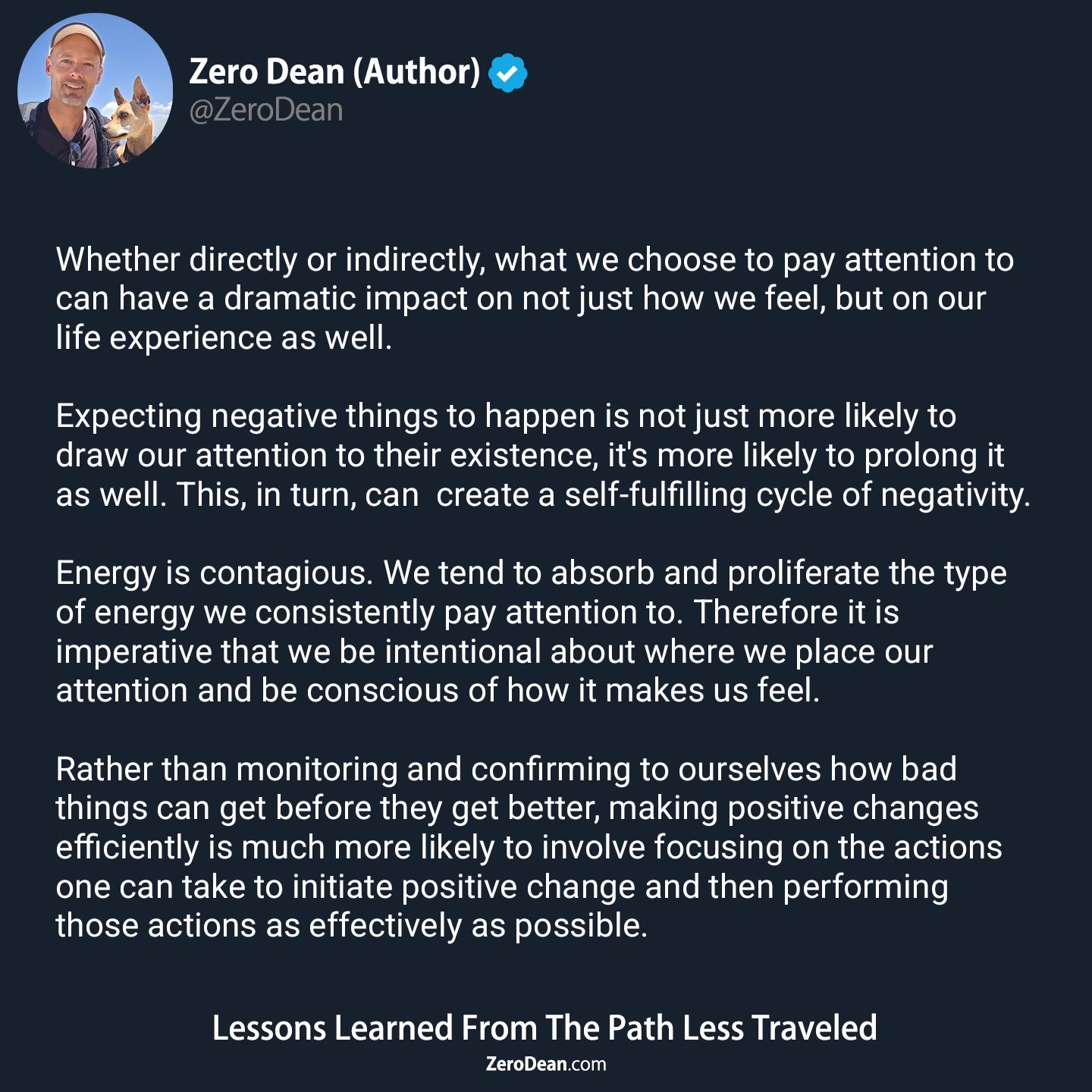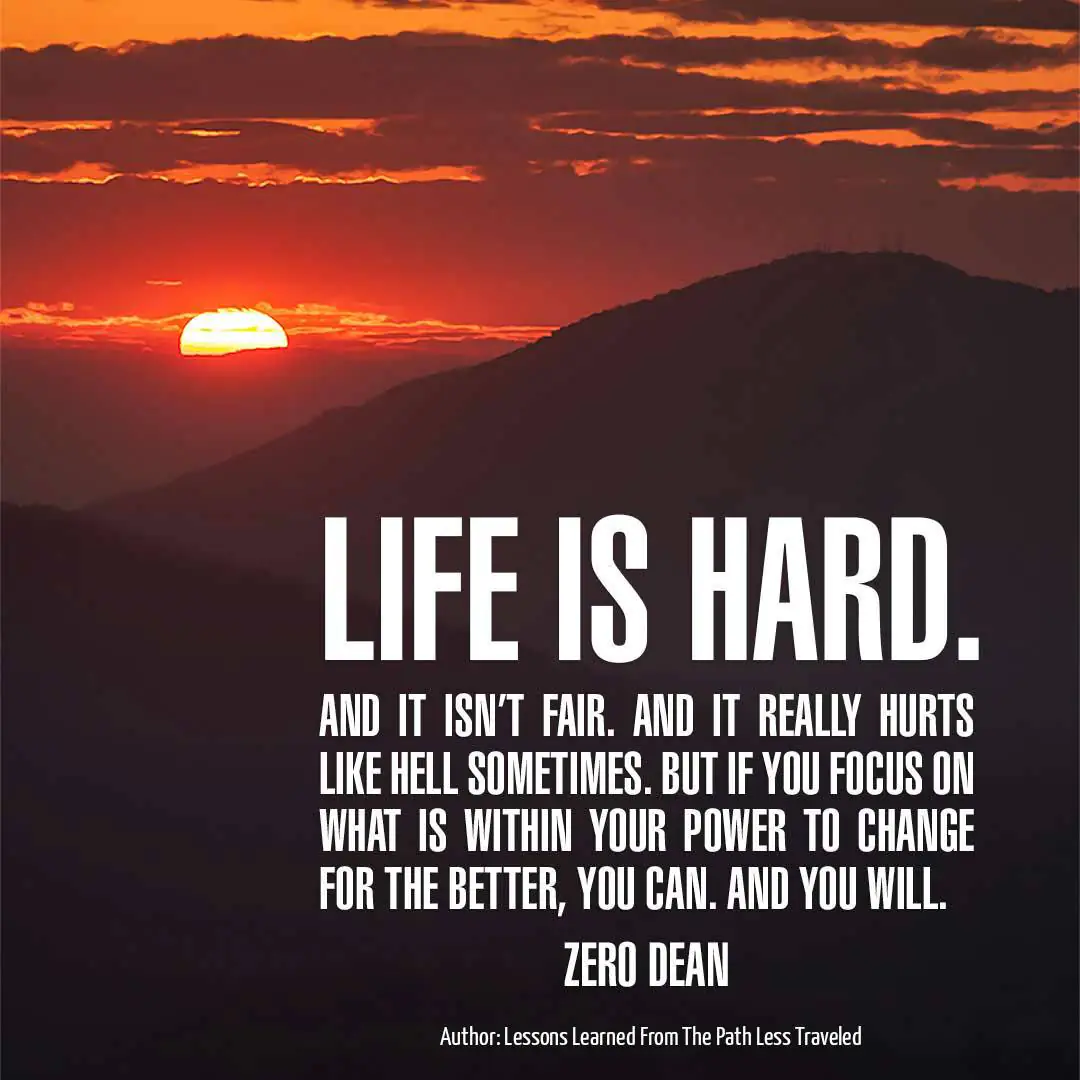
Whether directly or indirectly, what we choose to pay attention to can have a dramatic impact on not just how we feel, but on our life experience as well.
Expecting negative things to happen is not just more likely to draw our attention to their existence, it’s more likely to prolong it as well. This, in turn, can create a self-fulfilling cycle of negativity.
Energy is contagious. We tend to absorb and proliferate the type of energy we consistently pay attention to. Therefore it is imperative that we be intentional about where we place our attention and be conscious of how it makes us feel.
Rather than monitoring and confirming to ourselves how bad things can get before they get better, making positive changes efficiently is much more likely to involve focusing on the actions one can take to initiate positive change and then performing those actions as effectively as possible.


